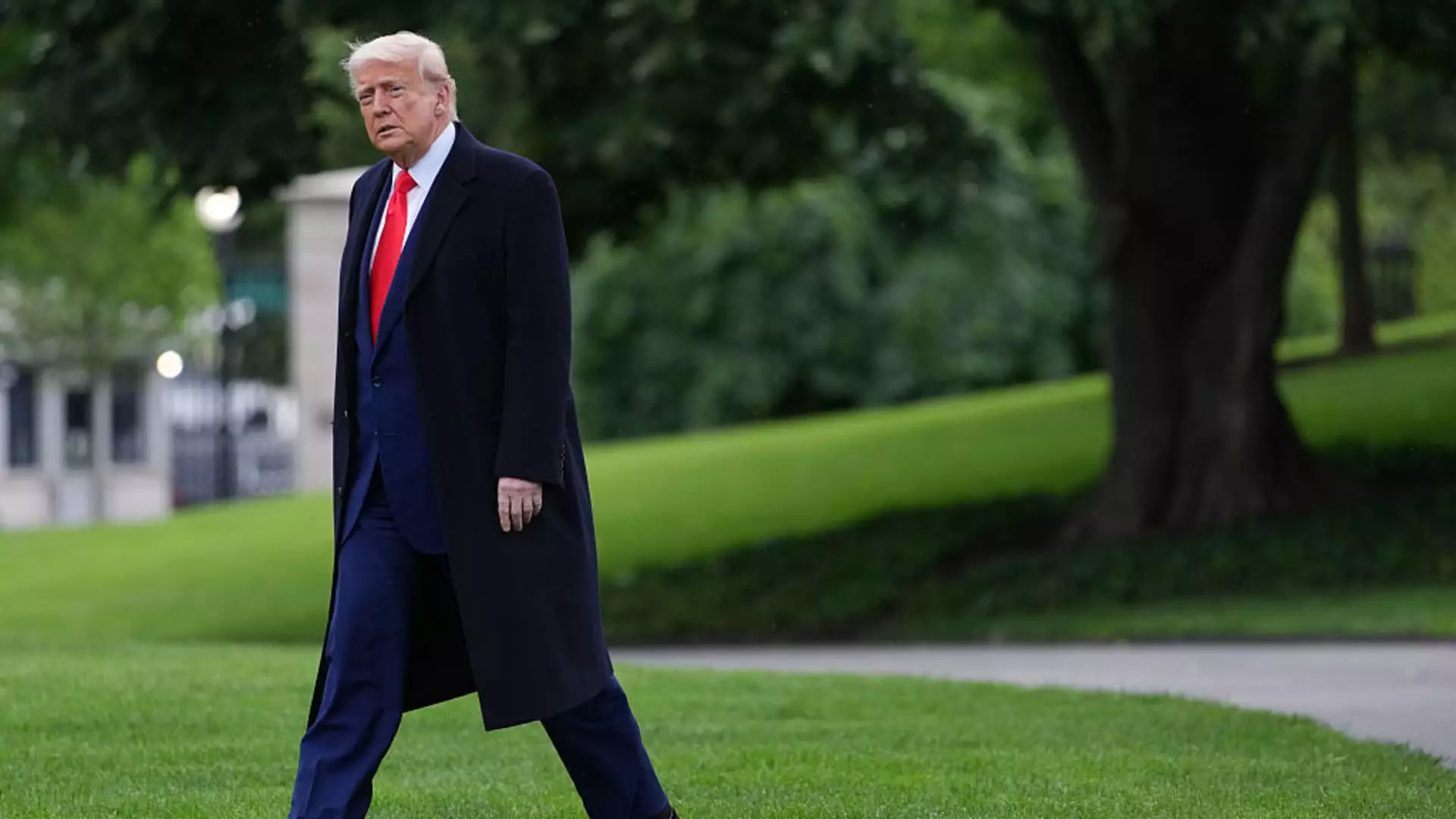In a move that ignites controversy and concern, the Trump administration has lifted restrictions on investing in cryptocurrency within 401(k) plans. This decision, made public by the Labor Department, marks a stark departure from the more cautious guidelines established under President Biden, which aimed to protect workers from the inherent risks posed by digital assets. The implications of this reversal could jeopardize the financial security of countless Americans, thrusting them into a speculative market characterized by volatility, fraud, and uncertainty.
The Biden-era authorities were right to express “serious concerns” about the prudence of involving cryptocurrencies in retirement savings. The allure of fast gains cannot overshadow the reality of significant risks, including theft and loss. By rescinding these protective measures, the current administration seems to be endorsing a reckless gamble with the financial future of American workers. This shift raises fundamental questions about fiduciary responsibility and the obligation to safeguard retirees’ investments.
Fiduciary Duty: A Casualty of the New Policy?
Employers who manage 401(k) plans have a fiduciary duty – a legal obligation to prioritize the best interests of their employees’ retirement savings. However, the Trump administration’s stance appears to weaken this critical standard. By withdrawing cautionary guidance that urged “extreme care,” it sends the message that crypto investments in retirement plans may be treated just like any traditional asset. This approach defies the spirit of responsible investing and potentially exposes employers to legal liability in the event that employee investments falter in the tumultuous crypto landscape.
Philip Chao, a certified financial planner, voices the significant concerns of many in the financial planning community. While he notes that the regulation is not “necessarily controversial” and aligns crypto with other types of investments, he rightly points out the unique volatility and absence of regulatory safeguards surrounding digital assets. The potential for massive losses raises alarms over whether employers are genuinely equipped to make informed decisions about offering such investments, potentially leading to disastrous outcomes for employees.
The Allure of the ‘Crypto Capital’
The Trump administration’s push for America to become the “crypto capital of the world” is not merely an economic endeavor; it hints at personal interests intertwined with political maneuvers. Notably, President Trump has recently introduced a $TRUMP meme coin, which adds a layer of complexity and ethical scrutiny to this narrative. The timing of the Labor Department’s decision, juxtaposed with the president’s entry into the cryptocurrency space, provokes skepticism about the sincerity of this management change.
Some in the crypto community view the Labor Department’s action as a triumph—a green light for employers to dive into digital investments without the tethers of caution that previously restrained them. However, this perspective is short-sighted and overlooks the long-term consequences of potential failures. Workers deserve better than to be pawns in a fluctuating market, governed by the whims of crypto enthusiasts and opportunists.
Implications for Workers and Their Future
By fostering an environment that encourages crypto investments in 401(k) plans, the administration risks establishing a culture of gambling with retirement funds instead of nurturing a stable path to financial security. The reliance on unregulated digital assets is a disservice to workers, especially those who may not possess a deep understanding of cryptocurrencies. As the market sways from extreme highs to dramatic lows, many individuals may find themselves left empty-handed when they should be enjoying a well-deserved retirement.
It is time for voices on both sides of the aisle to come together and re-evaluate what responsible investing means in this emerging landscape. The exploration of digital assets as a potential investment class is valid, but prioritizing sense and safety should come first. Policymakers, employers, and financial advisors need to ensure that protecting retirement savings remains the priority, rather than chasing after the next speculative craze.
In a democracy that thrives on debate, this is not merely a financial issue—it is a fundamental question of morality and responsibility in the stewardship of workers’ lives. The shifting narrative surrounding cryptocurrency in 401(k) plans should be approached with caution, care, and a steadfast commitment to the welfare of all American employees.


Leave a Reply